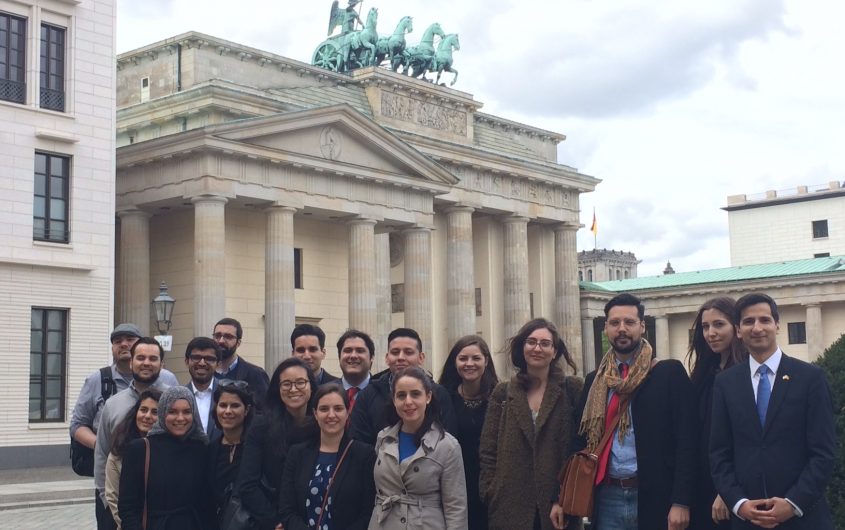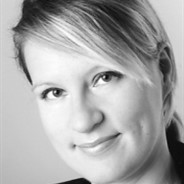
AICGS
If the Transatlantic Project Is to Become More Attractive for Younger Germans, It Will Have to Open Up to More Diverse Groups and New Issues

Anne Jenichen
Aston University
Anne Jenichen is Lecturer (Assistant Professor) in Politics and International Relations at the Aston Centre for Europe, Aston University, Birmingham, UK. Her research focuses on the political impact of international norms and organizations; European human rights policy; the rights of disadvantaged groups, such as women and religious minorities; and on the politicization of religion in Europe. She holds a Diploma (equivalent to an MA) in Political Science from Free University Berlin and a Doctoral Degree in Political Science from the University of Bremen, Germany, where she also taught political science and European studies before joining Aston. She was Volkswagen Foundation Fellow at the Transatlantic Academy in Washington, DC (2014-15), Visiting Research Fellow at the Institut d‘Études Européennes, Université Libre de Bruxelles (2011), Research Fellow at the United Nations Research Institute for Social Development (UNRISD) in Geneva (2007-09), and Visiting Fellow at the Department of Sociology and Anthropology, Northeastern University, Boston (2007). For the Heinrich Böll Foundation in Berlin, she coordinated an international research project on “Religion, Politics, and Gender Equality” (2007-2010).
She is a 2018-2019 participant in AICGS’ project “A German-American Dialogue of the Next Generation: Global Responsibility, Joint Engagement,” sponsored by the Transatlantik-Programm der Bundesrepublik Deutschland aus Mitteln des European Recovery Program (ERP) des Bundesministeriums für Wirtschaft und Energie (BMWi).
The transatlantic idea has been in decline, if less so in the United States, definitely in Germany. Favorable views of the U.S. in Germany and confidence in American presidents as well as in the transatlantic relationship have decreased, particularly during periods of Republican presidencies—and in extreme forms since the current president, Donald Trump, came into office. While contingent on who is in power in the U.S. (as evidenced by the contrasting popularity of Barack Obama among Germans), I ask myself whether there is also something about the transatlantic project itself that makes it less attractive for many younger Germans. When looking at the main supporters of this project and the issues they champion, I cannot help but wonder whether it is its conservatism that limits its attractiveness to a certain part of the German population.
When looking at the websites of the main transatlantic organizations in Germany, such as the Atlantik-Brücke, the Deutsche Atlantische Gesellschaft, the Aspen Institute Germany, and the Atlantische Initiative, it catches one’s eye that they are dominated by members of the Christian Democratic Union (CDU) and the Christian Social Union (CSU), either their governing bodies, their members, or the speakers they invite (which does not mean that members of other parties do not participate, though they usually represent the more conservative wings of their parties and often are outnumbered by Conservatives). This becomes particularly apparent in the participants’ lists of the Bilderberg meetings, which in the previous three years were only attended by German politicians of the CDU (participation is by invitation only).
In addition, these organizations are also curiously white and male. Although there are two German Green politicians with Turkish and Iranian backgrounds present in the German transatlantic network, German advocates of the transatlantic partnership are usually not from a visible migration background. Similarly, there is a lack of women, particularly in the governing bodies of these organizations, with a women’s share ranging from 19 percent (Atlantik-Brücke) down to 6 percent (Atlantische Initiative, which is especially concerning as this organization was founded by and for a younger generation of transatlanticists).
Although a bit better in terms of numbers, this lack of women in the governing bodies of transatlantic organizations and on the panels they organize is mirrored on the American side. For instance, women comprise only 26 percent and 20 percent of the governing boards of The German Marshall Fund (GMF) and the Atlantic Council, respectively, and less than 30 percent of the policy experts in these think tanks are women, and about 30 percent of their panels consist exclusively of male speakers; although it also has to be noted that GMF is one of the few DC-based think tanks headed by a woman.
Back to German transatlantic organizations, beyond sheer numbers there is also a strong emphasis on particular topics, primarily traditional security issues, such as NATO and the call for an increase of defense spending, as well as energy and economic issues, including free trade agreements, each of them often coupled with geopolitical questions. Despite emerging interest in new issues, such as challenges arising from increasing digitalization, fake news, immigration, and right-wing populism, the prevailing topics and positions are those of the center-right. More progressive issues, such as social equality or environmental and climate protection, by contrast, are largely absent from the transatlantic dialogue (despite the occasional event on, for instance, diversity in the workplace or clean energy).
The younger electorate in Germany (below 35), however, has shown a stronger inclination for smaller, left-leaning parties, such as the Left and the Greens, and their post-material platforms than older electoral cohorts. And even though women are (again) quite supportive of the CDU, they also tend to favor left-leaning parties, such as the Greens, and are more interested in social issues, such as gender equality or education, than many of their male counterparts.
If the transatlantic project is to become more attractive for younger Germans, it will have to open up to more diverse groups, political positions, and issues.
Therefore, if the transatlantic project is to become more attractive for younger Germans, it will have to open up to more diverse groups, political positions, and issues. Some organizations have to be commended for starting to embrace more diversity in their programs, like AGI’s Transatlantic Exchange Program for Young Minorities or the Atlantic Initiative’s Atlantic Expeditions. Still, more of this and more steering toward post-material issues and progressive positions, such as gender and race equality or environmental and climate protection, are required if the transatlantic partnership is to be revived, and if it wants to become more attractive for a larger audience.








